
 Flash News
Flash News
Shuhet në moshën 86-vjeçare regjisori i njohur Piro Milkani
Poisoning of children in Gramsh, health authorities react after the publication of the case
SPAK conducts inspections at Tirana Municipality, 5 phones seized
4 days after the intervention at a dental clinic in Tirana, a 63-year-old Italian man dies in hospital
Igli Tare officially appointed as Milan's new Sporting Director
Problems in supply chains, automotive industry little hope to benefit Albania
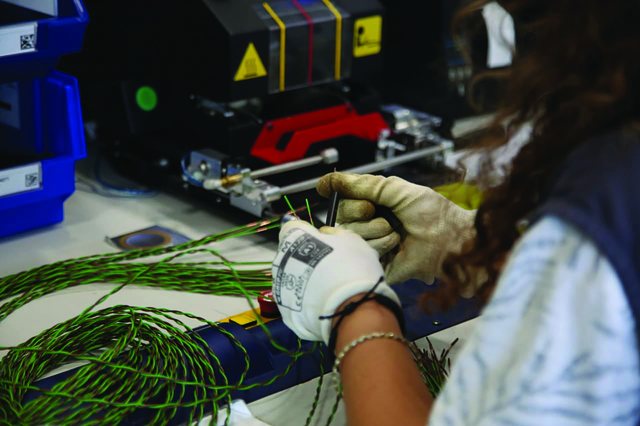
The automotive industry has increased its presence in the Western Balkans in the last 10 years, especially Serbia and Northern Macedonia.
Problems with supply chains in China are stepping up efforts to shift production closer, but it seems that, unlike the fason where Albania has experience and is more competitive, the transfer of the automotive industry requires more government time and effort.
In Albania there are a number of companies that produce wires, cables, tires or simple parts for international companies such as Mercedes Benz, KIA, Hyundai, Peugot, Renault, Fiat Group, Sumitomo Electric Industries, which have significantly increased exports in recent years.
Ertjan Çabiri, Managing Director of Delmon Group in Albania, a French company that produces rubber parts for the car industry, said that the reconceptualization of globalization is very concrete and is being discussed in all industries. There are interests of many companies in our sector in relation to Albania. But all these companies make a benchmark with all the countries in the region. Çabiri said that the decision to invest in Albania remains in the ability of the Government to convince investors of the competitive advantages of our country.
Mario Scarfalloto, manager of SEWS Cabind Albania, which manufactures parts for car electrical systems, said that the situation in the Balkans looks somewhat different, as instead of increasing the presence, the pandemic kept them away from joining the European Union and showed that it is not in a stable economic situation. It is therefore necessary now to look towards the EU and be as close as possible to this market, as well as to stimulate the economy to have strong rejuvenation.
Ercan Yagmur, administrator of Forschner Albania, a German company that manufactures vehicle cable systems, said there were no concrete steps to transfer production units to the automotive industry in Albania. The effect of non-supply in time and quantity, with raw materials from China, has led to distortions of the entire supply chain in the automotive sector, but again the same dependence on the Asian market is observed as it was before the pandemic started in the European Union .
Pessimistic industry for 2022
The automotive industry is part of the group of sectors that do not expect an optimistic year in 2022. The reason for this is the lack of raw materials. The expectation is such at the highest levels of automobile manufacturers and is evenly distributed throughout the chain with which this industry is linked.
Pavarësisht fillimit të një viti të mirë në 2021-shin, tremujori i fundit i tij rezultoi me një shok të ri në industrinë e prodhuesve të automobilave. Alarmi ra fillimisht për mungesën e mikroçipave në treg, më pas për një seri lëndësh të para që kishin kërkesë të lartë në treg e disponueshmëri të ulët. Magnezi ishte i fundit që iu shtuar listës së kuqe me mungesa dhe u interpretua si një sinjal për rritjen e mëtejshme të kostove të prodhimit.
Ertjan Çabiri, Drejtori Menaxherial i Delmon Group në Shqipëri, shprehet se në përgjithësi, viti 2021 stabilizoi kërkesën për automobila. Por, oferta nuk arriti të garantohej, sepse kompanitë e mëdha të prodhimit të automjeteve nuk gjenin në treg mjaftueshëm mikroçipa për të garantuar prodhimin sipas planit.
“Rrjedhimisht, kompanitë e prodhimit të makinave ulën kërkesën edhe për qindra pjesët e tjera që i duhen një automobili të përfunduar. Kjo ndodhi me të gjitha kompanitë e zinxhirit furnizues, përfshirë edhe Delmon Group, ku tremujori i katërt ishte ai më i vështiri, me rënie 50% të prodhimit” – pohon z. Çabiri.
Përfaqësuesit e kompanive të industrisë automotive në vendin tonë nënvizojnë njëzëri rritjen që kanë shënuar kostot e transportit në kanalet ndërkombëtare, por edhe brenda vendit, e lidhur kjo me çmimin e karburantit. Sipas përfaqësuesit të Forschner, kosto e importit të lëndës së parë nga zona e Azisë është rritur me më shumë se 50%, për shkak të reduktimit të fluturimeve, apo reduktimit të transporteve ujore.
Mario Scarfalloto, nga Sews Cabind Albania, pohon se për qëndrueshmëri në industrinë automotive, por edhe më gjerë, do të mund të flasim vetëm në vitin 2023.
“Mendoj se deri në momentin që i gjithë zinxhiri i furnizimit nuk do të jetë stabilizuar, situata do të vazhdojë njëlloj si tani, edhe në të ardhmen afërt. Sigurisht, ulja e konsumit të lëndëve të para (e nevojshme për shkak të mungesës së tyre) do të shkojë besoj pas 4-5 muajsh drejt stabilizimit. Kjo do të thotë se 6-mujori i dytë i vitit 2022 do të sjellë stabilizimin e tregut dhe rinisjen normale të ciklit të prodhimit. Ndaj parashikimi im është se 2022-shi do të jetë një vit i vështirë, dhe 2023-shi, një vit i qëndrueshëm” – thekson ai.
Another problem for businesses in Albania seems to have appeared on the horizon recently, which has to do with the entry into the free market of 7358 businesses. The Electricity Distribution Operator has announced that businesses connected to the 20, 10 and 6 kv will have to supply only energy from January 2022, taking them out of the regulated market.
This means that businesses will have to face stratospheric prices that in some special months reach three times the value at which they buy energy in the free market./Monitor
Latest news


Kujdes nga mashtrimet online, si teknologjia nxit krimet financiare
2025-05-24 21:32:33

Opposition's denunciations, Xhaferri: We expect the US to listen to us
2025-05-24 20:48:06
How did PSD "capture" over 50% of the votes in rural areas?
2025-05-24 20:29:54
The Albanian woman with the s*x went to meet her husband in Koridalos prison
2025-05-24 20:09:15
Ancelotti says goodbye to Real Madrid in tears: I love you with all my heart!
2025-05-24 19:49:08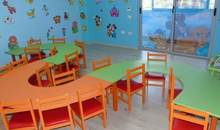
Poisoning in Gramsh, parents of children warn of protest
2025-05-24 19:21:36
Taulant Xhaka retires from football
2025-05-24 18:53:35


Incident in the north, Serbia issues arrest warrant for Kosovo police officer
2025-05-24 17:59:24

SPAK conducts inspections at Tirana Municipality, 5 phones seized
2025-05-24 17:19:23
FIFA President congratulates Egnatia on the championship title
2025-05-24 17:00:15


Boçi: The elections were annulled, the DP will continue the fight
2025-05-24 16:06:58
Man reports to police: Wife took my son and ran away, I'm asking for help
2025-05-24 15:45:55
France and Germany with a "non-paper" for Republika Srpska
2025-05-24 15:29:29

Beware of online scams! Here's how technology fuels financial crimes in Albania
2025-05-24 14:53:33

The US military "landed" in Kosovo as part of "Defender Europe 25"
2025-05-24 14:42:19
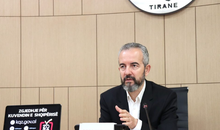








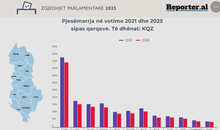
BIRN Analysis: Voters who were absent in the parliamentary elections
2025-05-24 11:19:40




Bus collides with municipal police car in Fier, 6 injured
2025-05-24 09:25:01
Foreign exchange, May 24, 2025
2025-05-24 09:07:27

With rain and storms, get to know the weather forecast
2025-05-24 08:32:03
What do the stars have in store for you today?
2025-05-24 08:17:04
Morning Post/ In 2 lines: What mattered yesterday in Albania
2025-05-24 08:00:34




Tirana Lake Park, a campaign center for Noizy. The signatory is silent
2025-05-23 21:55:02



What's happening in Gaza, the struggle for survival in times of war in pictures
2025-05-23 21:02:54
DW: Germany strengthens the return of illegal migrants!
2025-05-23 20:39:57


Knife attack at Hamburg train station, 12 injured
2025-05-23 19:54:58
120 children go missing every year in Albania, 12 still missing in 30 years
2025-05-23 19:35:35
US court suspends order banning Harvard from admitting foreign students
2025-05-23 19:22:41
Zodiac signs that become luckiest after the third decade of life
2025-05-23 19:19:06
Igli Tare officially appointed as Milan's new Sporting Director
2025-05-23 19:01:12




Istanbul Agreement, Ukraine and Russia exchange 800 prisoners
2025-05-23 17:54:20



Belina Pupa reacts to serious accusations in Australia for drug cultivation
2025-05-23 16:59:55


The Llogara tunnel opens tomorrow, until when will it be free of charge?
2025-05-23 16:09:31





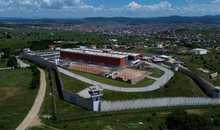
The first prisoners from Denmark are expected to arrive in Kosovo in April 2027.
2025-05-23 14:51:26
May 11/ Celibashi approves the summary tables of results for 4 districts
2025-05-23 14:50:04
Trump threatens tariffs on EU goods and iPhones
2025-05-23 14:39:47
Artan Lame passes away, his mother confirms: This cursed moment came
2025-05-23 14:26:48
Divorce map in 61 municipalities, the South far ahead of the North
2025-05-23 14:15:16
2-year-old Dutch boy falls from third floor of Rinas hotel, taken to hospital
2025-05-23 14:01:40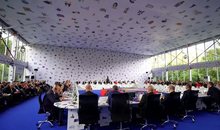
Europeans, you have slandered us.
2025-05-23 13:54:00
Vlora/ He hit the minor and fled the scene, the 27-year-old woman is wanted
2025-05-23 13:41:24
Arrested today in Lalëz, who is Flobens Meçja, was paid by Çopja to kill Alibej
2025-05-23 13:33:43
Here's how many hours you should sleep depending on your age
2025-05-23 13:32:16
Berisha reveals when he will leave politics
2025-05-23 13:12:15
Three proven ways to dismantle an autocrat
2025-05-23 13:03:16
"The goods are 800-cents", how Altin Morina trained RENEA and made bargains
2025-05-23 12:59:07
Berisha: Poja was Rama's guest, Surreli was used for gang meetings
2025-05-23 12:49:22



Meta: The criminal regime destroyed the elections, a threat to democracy
2025-05-23 12:16:48

